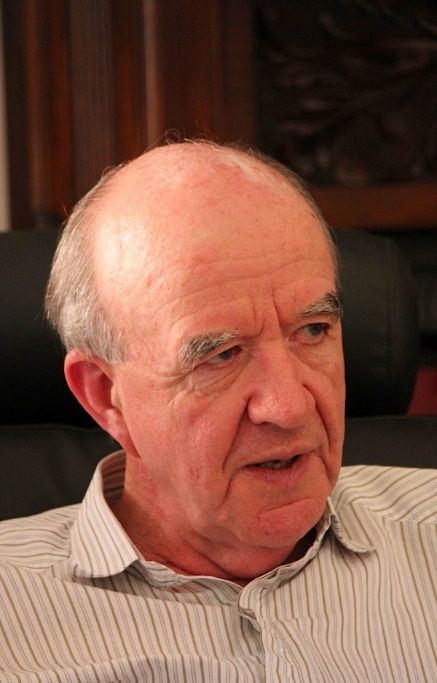Paraklesis
[‘encouragement’, ‘exhortation’, for life and ministry]
June 2022
Peter Adam
Webpage: peteradam.org
Dear friends,
When I became a Christian at the age of 16, Harrie Scott Simmons, who converted me, then met with me once a week for the next three years to disciple me and pray with me. One lesson I learnt, among many others, was to be aware of my personal sins, to confess them to God after I had committed them, and to spend time in prayer at the end of each day, reflecting on the day, thanking and praising God for his good gifts, confessing my sins, and committing to God the work I had done and the people I had met.
So daily repentance, forgiveness, cleansing, and I trust, transformation, have been a vital part of my life since then. I learnt that if I had sinned, I should not ignore it, punish myself for it, or distance myself from God, but run quickly to him to ask and trust him for his promised and covenanted loving forgiveness and cleansing through the cross of Christ.
If I meet people in ministry who do not engage in daily and constant repentance. I remind them of these words from the Lord’s prayer: ‘forgive us our sins’. Or from 1 John,
If we claim to have fellowship with him and yet walk in the darkness, we lie and do not live out the truth. But if we walk in the light, as he is in the light, we have fellowship with one another, and the blood of Jesus, his Son, cleanses us from all sin.
If we claim to be without sin, we deceive ourselves and the truth is not in us. If we confess our sins, he is faithful and just and will forgive us our sins and cleanse us from all unrighteousness [1:6-9].
Or from Paul’s letter to Timothy,
Those who cleanse themselves from common use will be instruments for special purposes, made holy, useful to the Master and prepared to do any good work [2 Timothy 2:21].
Some questions for us when we do not confess our sins daily
Do we imagine that we do not sin, that we are perfect?
When we sing about the atoning death of Christ for our sins, do we think only of our sins when we were not Christians? Is not Christ still our saviour by whose blood we are continually forgiven and cleansed?
Is it not the case that the main hindrance to our usefulness to God in ministry is not our lack of gifts, opportunities, planning, or resources, but our sins?
Do not our sins hinder our relationship with God? Do not our sins damage our relationships with others?
Is it sufficient to evaluate our ministry by questions such as ‘Does it work?’ ‘Is it successful?’ Should we not also ask questions like, ‘Is God pleased with the people doing this ministry, with the way this ministry is done, with the motivation of this ministry?’
Is it not the case that even if we are careful to keep our sins secret from others, they are not hidden from God?
How long is it since we changed the way we live because of something we read in the Bible?
Should we not echo Paul’s prayer for the Thessalonians ‘May God himself … sanctify you through and through’ [1 Thessalonians 5:23]?
When we reflect on our day or our life, we often think of what we have achieved, what we have not achieved, the pleasant or unpleasant things that have happened. These matters relate to our evaluation of our day, of our lives. What about God’s evaluation of us? He will recognise the good things we have done. He will also see our sins, and want us to repent. As Jesus says to the church at Ephesus,
I know your deeds, your hard work and your perseverance … Yet I hold this against you: You have forsaken the love you had at first. Consider how far you have fallen! Repent and do the things you did at first [Rev 2:2,4-5].
How to recognise our daily sins
Ask God to show us our sin, and to show us that we are sinners. As we read the Bible, ask him to show us our sin. We need God to do this, because: our heart is deceitful; our sin deceives us; sin enslaves us; and Satan deceives and seduces us [Jeremiah 17:9, Hebrews 3:13, John 8:34, 2 Corinthians 11:3].
We will find sins in our actions, intended or unintended. We will find sins in our habits [because they are habits, they are more invisible to us]. We will find sins in our reactions [we may not intend to sin, but respond badly when someone offends us]. And we will find sins in our inactions, the things we do not do. [We are more conscious of what we do than of what we do not do, the debts we owe to God and to others.]
How to repent
- Remember the holiness, justice, grace and mercy of God in Christ.
- Recognise and confess the sin.
- Repent of the sin, and of the pleasure and benefits that resulted from the sin
- Receive the forgiveness and cleansing so freely given by God through Christ’s death on the cross [I John 1:7,9].
- Renounce the sin, and resolve to do the opposite, or the replacement [on the basis of ‘let the thief no longer steal, but rather work to give to those in need’ Ephesians 4:25-32.] Replace the negative action by a positive action
- Restore the damage to the other person, if possible and appropriate.
When to repent
Repent immediately you are aware that you have sinned. [And immediately apologise to anyone against whom you sinned.]
In your prayers at night, review your day: praise and thank God for his goodness and kindness in your life and ministry; pray for people you have met, and for the continued effects of your ministry; confess any unconfessed sins and trust and thank God for his forgiveness; and entrust you and yours to God’s mercy.
So let us praise, worship, trust, and adore our gracious God for his steadfast love, mercy, grace, kindness in the atoning death of Christ, his mighty resurrection, his desire to forgive us our sins, and his gift of the transforming Holy Spirit.
All believers are both sinners and saints, saints and sinners.
- Saints need to remember that they are also sinners, and still take sin seriously.
- Sinners need to remember that they are also saints, and that God is working in them daily to transform them into the image of Christ.
If we are regularly confessing our personal sins we are more likely to be aware of sins of ministry, and more able to repent of them. Conversely, if we not regularly confessing our personal sins, we are less likely to recognise our sins of ministry, and repent of them. Beware!
With warmest good wishes, beloved friends and fellow-workers.
Yours,



